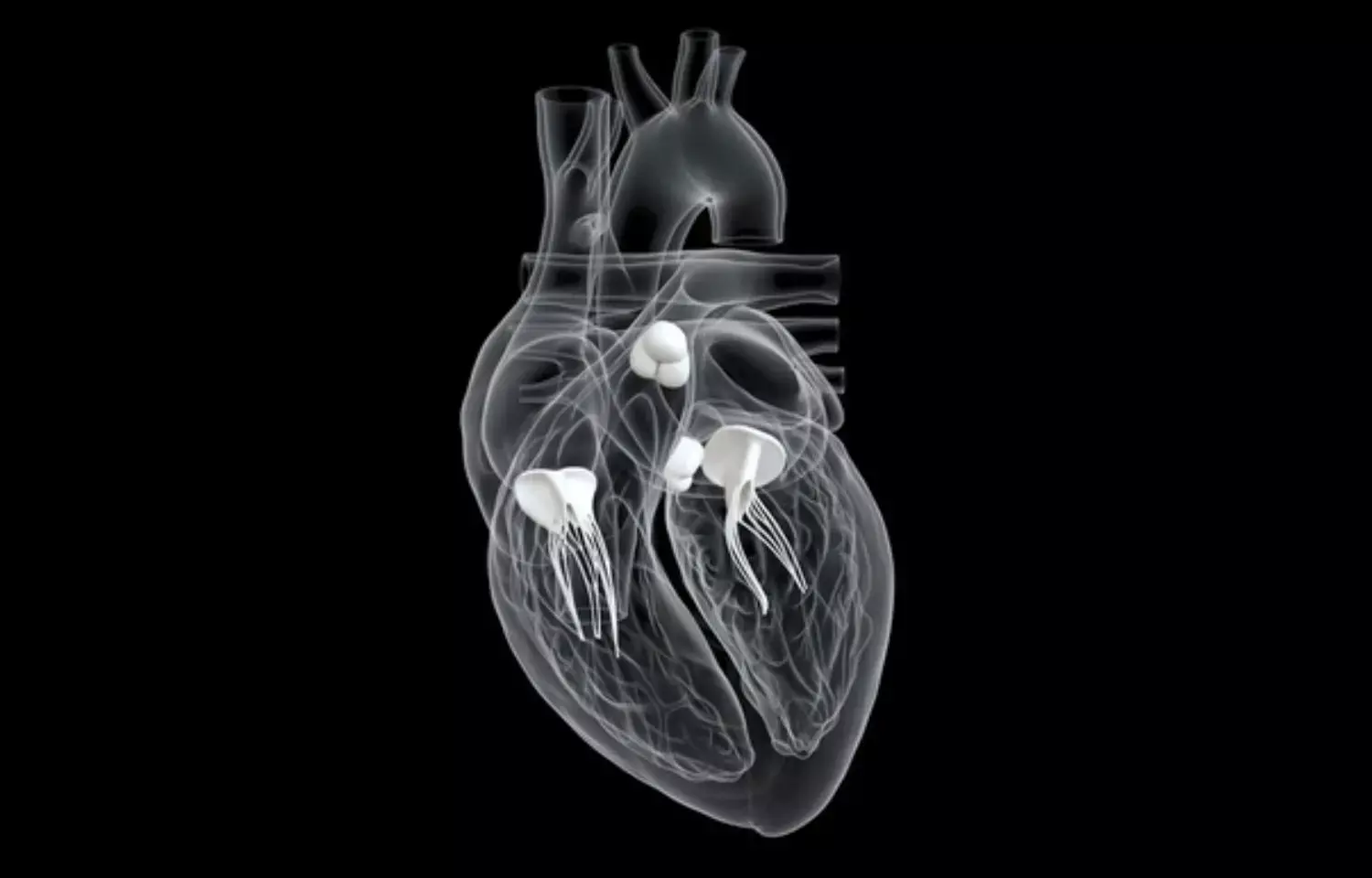- Home
- Medical news & Guidelines
- Anesthesiology
- Cardiology and CTVS
- Critical Care
- Dentistry
- Dermatology
- Diabetes and Endocrinology
- ENT
- Gastroenterology
- Medicine
- Nephrology
- Neurology
- Obstretics-Gynaecology
- Oncology
- Ophthalmology
- Orthopaedics
- Pediatrics-Neonatology
- Psychiatry
- Pulmonology
- Radiology
- Surgery
- Urology
- Laboratory Medicine
- Diet
- Nursing
- Paramedical
- Physiotherapy
- Health news
- Fact Check
- Bone Health Fact Check
- Brain Health Fact Check
- Cancer Related Fact Check
- Child Care Fact Check
- Dental and oral health fact check
- Diabetes and metabolic health fact check
- Diet and Nutrition Fact Check
- Eye and ENT Care Fact Check
- Fitness fact check
- Gut health fact check
- Heart health fact check
- Kidney health fact check
- Medical education fact check
- Men's health fact check
- Respiratory fact check
- Skin and hair care fact check
- Vaccine and Immunization fact check
- Women's health fact check
- AYUSH
- State News
- Andaman and Nicobar Islands
- Andhra Pradesh
- Arunachal Pradesh
- Assam
- Bihar
- Chandigarh
- Chattisgarh
- Dadra and Nagar Haveli
- Daman and Diu
- Delhi
- Goa
- Gujarat
- Haryana
- Himachal Pradesh
- Jammu & Kashmir
- Jharkhand
- Karnataka
- Kerala
- Ladakh
- Lakshadweep
- Madhya Pradesh
- Maharashtra
- Manipur
- Meghalaya
- Mizoram
- Nagaland
- Odisha
- Puducherry
- Punjab
- Rajasthan
- Sikkim
- Tamil Nadu
- Telangana
- Tripura
- Uttar Pradesh
- Uttrakhand
- West Bengal
- Medical Education
- Industry
In Rheumatic heart disease AF, rivaroxaban use raises death, stroke risk: INVICTUS

Rheumatic heart disease is a chronic condition resulting from heart valve damage caused by rheumatic fever. One in five patients with symptomatic valve disease have atrial fibrillation and an increased risk of stroke and systemic embolism.
According to a new study, use of rivaroxaban was associated with a higher risk of major CV events compared with vitamin K antagonist (VKA) therapy among patients with atrial fibrillation (AF) caused by rheumatic heart disease.
The findings of randomized INVICTUS study were presented at ESC Congress 2022.
Professor Ganesan Karthikeyan of the All India Institute of Medical Sciences (AIIMS), New Delhi, India said: "Guidelines recommend vitamin K antagonists (VKA) for stroke prevention in patients with rheumatic heart disease and atrial fibrillation6 but until now there were no randomised controlled trials.
Rheumatic heart disease largely occurs in low-and low-middle income countries7 where maintenance of the international normalised ratio, required for the effective use of VKA, is poor.8 Direct oral anticoagulants (DOACs) do not require monitoring and we reasoned that, if safe and effective, they would fulfil a major unmet need in these patients."
INVICTUS was a randomised, open-label, non-inferiority trial comparing the DOAC rivaroxaban to VKA in patients with echocardiographically documented rheumatic heart disease, atrial fibrillation and an elevated risk of stroke (mitral stenosis with valve area ≤2 cm2, left atrial spontaneous echo contrast or thrombus, or CHA2DS2VASc score ≥2).9,10 The trial randomly allocated 4,565 patients from 138 sites in 24 countries in Africa, Asia and South America to rivaroxaban 20 mg once daily or adjusted dose VKA.
The primary efficacy outcome was a composite of stroke, systemic embolism, myocardial infarction, or death from vascular or unknown causes. The primary safety outcome was International Society on Thrombosis and Haemostasis (ISTH) major bleeding.
A total of 4,531 patients were included in the final analysis. At a median follow up of 3.1 years, 559 out of 2,275 patients receiving rivaroxaban (8.26% per year) had a primary efficacy outcome event compared to 442 out of 2,258 patients receiving VKA (6.46% per year). The restricted mean survival time (RMST) for the primary outcome was 1,576 days in the rivaroxaban group and 1,652 days in the VKA group (RMST difference -75 days; 95% confidence interval [CI] -117 to -34; p<0.001).
The risk of death was also significantly lower among patients on VKA. The RMST for death was 1,587 days in the rivaroxaban arm and 1,660 days in the VKA arm (RMST difference -73 days, 95% CI -114 to -32).
There was no significant difference between the groups for the primary safety outcome, major bleeding, which occurred in 40 out of 2,266 patients (0.67% per year) in the rivaroxaban group and 56 out of 2,253 patients (0.83% per year) in the VKA group.
Professor Karthikeyan said: "INVICTUS is the first trial to assess anticoagulant therapy for stroke prevention in patients with rheumatic heart disease and atrial fibrillation. The results indicate that adjusted dose vitamin K antagonists should remain the standard of care for this patient population."
References:
1. Roth GA, Mensah GA, Johnson CO, et al. Global Burden of Cardiovascular Diseases and Risk Factors, 1990-2019: Update From the GBD 2019 Study. J Am Coll Cardiol. 2020;76:2982–3021.
2. Zuhlke L, Karthikeyan G, Engel ME, et al. Clinical outcomes in 3343 children and adults with rheumatic heart disease From 14 low- and middle-income countries: Two-year follow-up of the Global Rheumatic Heart Disease Registry (the REMEDY Study). Circulation. 2016;134:1456–1466.
3. Karthikeyan G. Stroke risk in rheumatic heart disease. Heart. 2021;107:694-696.
4. Karthikeyan G, Connolly SJ, Yusuf S. Overestimation of stroke risk in rheumatic mitral stenosis and the implications for oral anticoagulation. Circulation. 2020;142:1697–1699.
5. Hindricks G, Potpara T, Dagres N, et al. 2020 ESC Guidelines for the diagnosis and management of atrial fibrillation developed in collaboration with the European Association of Cardio-Thoracic Surgery (EACTS). Eur Heart J. 2020;42:373-498.
Dr Kamal Kant Kohli-MBBS, DTCD- a chest specialist with more than 30 years of practice and a flair for writing clinical articles, Dr Kamal Kant Kohli joined Medical Dialogues as a Chief Editor of Medical News. Besides writing articles, as an editor, he proofreads and verifies all the medical content published on Medical Dialogues including those coming from journals, studies,medical conferences,guidelines etc. Email: drkohli@medicaldialogues.in. Contact no. 011-43720751


